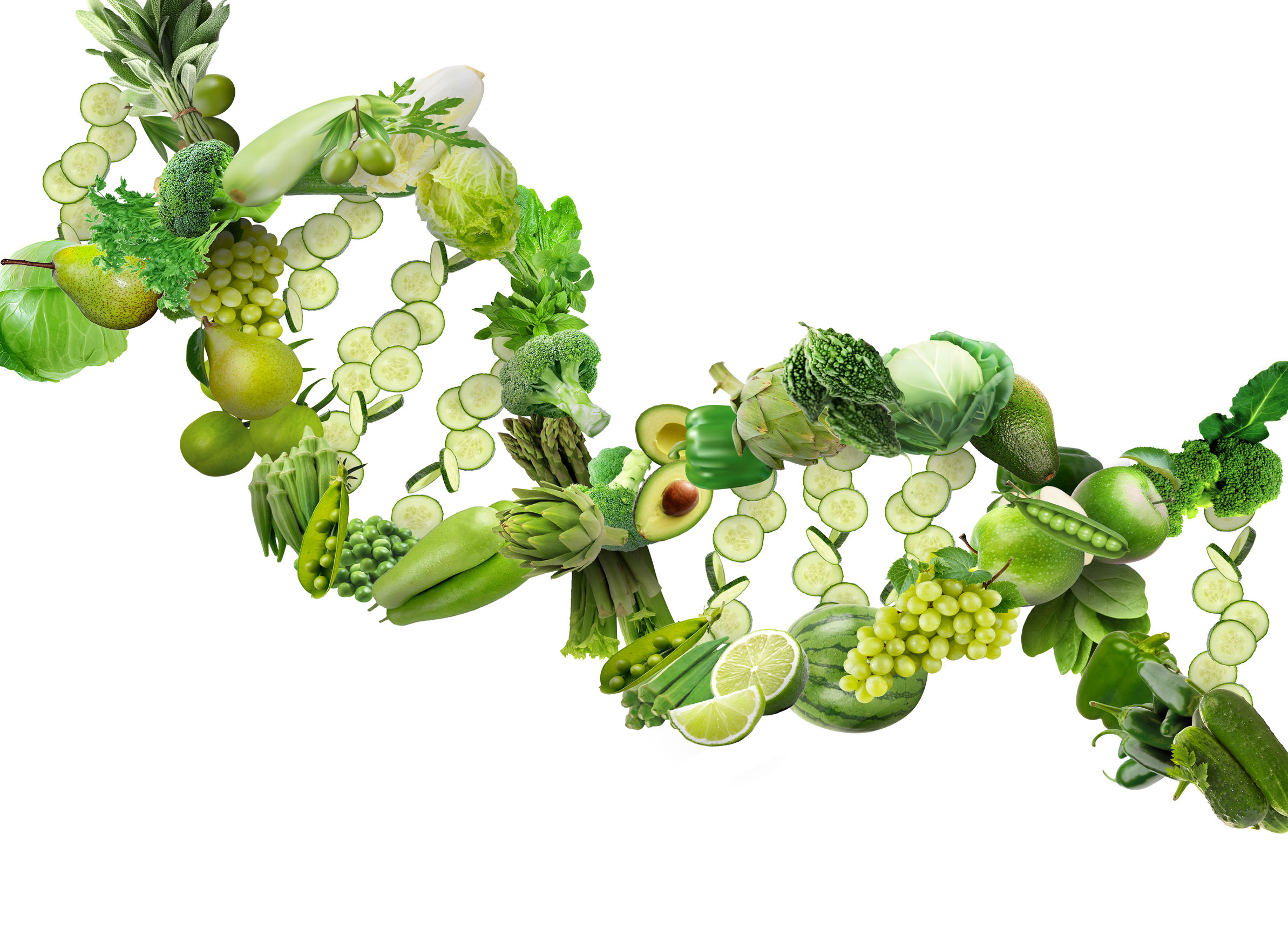”Alaska, how do you respond to dairy, meat, or other foods? How do your friends or family respond to those foods? Studies suggest that genetic differences could account for the varying reactions. Check out this week's article to learn more!
Reading time: 12 Minutes
MWi Hacks:
- Get the latest information on the leading efforts to individualize nutrition
- Use DNA, Biome, and Blood Tests as tools to design your own personalized diet
MWi Summary:
- Early studies from Harvard, Stanford, and other institutions suggest that genetic difference can account for varying responses to different diets.
- Lifestyle factors such as sleep, stress, exercise, and our gut microbiome diversity also influence how individuals metabolize foods. Thus, it is important to take a wholistic approach when making nutrition recommendations.
- There is still much to be learned about the effects of genetics and lifestyle factors on how we metabolize foods, but research is getting closer to be able to make personalized nutrition decisions.
No single food regimen works for everyone. A new study is the most comprehensive effort yet to understand why.
A decade ago, spurred by the success of the Human Genome Project and the affordability of genetic sequencing, scientists began to explore the promise of “nutrigenomics.” Could personalized nutrition, informed by knowledge of an individual’s DNA, help prevent and even treat diet-related diseases?
The results of early studies from Harvard, Stanford and elsewhere were compelling: Genetic differences seemed to predispose individuals to lose different amounts of weight on different types of diets. A multimillion-dollar industry soon sprang up, premised on marketing DNA-based diets. But subsequent research has failed to show any statistically significant difference in weight loss between overweight people who “eat right for their genotype” and those who do not.
In fact, the effect of genes on obesity has been hard to tease out; various studies put the figure at anywhere from 35 to 85 percent. Nutritionists have long observed that no one weight-loss strategy works for everyone, and that individuals show striking differences in their responses to different diets. What, then, explains the large variation in individual metabolism?
Last year, Tim Spector and Sarah Berry, epidemiologists at King’s College, London, and Dr. Andrew Chan, of Harvard Medical School, began an ambitious new search for the answer. Their new study, called Predict, is the world’s largest and most comprehensive experiment to look at individual responses to food.
Their preliminary results, presented on Monday at the American Society for Nutrition’s annual conference, documented, for the first time, substantial and surprising variations in how well participants processed fats and carbohydrates, even among identical twins. How efficiently a person metabolized one macronutrient was no predictor of how that person might respond to another.
“We are getting closer to being able to provide guidance for each person for what their ideal diet should be,” said Dr. Eric Topol, a geneticist at the Scripps Research Translational Institute in La Jolla, Calif., who was not affiliated with the study. “We’re not there yet, but the new study is another major milestone to get us there.”
For decades Dr. Spector has been exploring the causes of individual variation in disease risk, including diet-related ailments. In 1992, he set up TwinsUK, a research registry that now includes more than 13,000 identical and fraternal twins. Based on the twins, he concluded that genes contributed 70 percent of an individual’s risk for obesity, on average.
Intrigued, he began a series of studies to tease out which factors influenced the remaining 30 percent. In 2014, he began the British Gut project, a crowdsourced effort to understand the diversity of gut microbes, their response to different dietary interventions and their effect on weight. Among his registry of twins, he noticed, even identical pairs shared only about 50 percent of their gut bacteria.
Dr. Spector then started Predict to explore how variations in individual responses to fats and carbohydrates might contribute to obesity. Eating foods that contain fats and carbohydrates causes glucose, insulin and triglyceride levels in the blood to rise and fall; spikes that are too high, too prolonged and too frequent are associated with inflammation, weight gain, heart disease and diabetes.
The study included 700 identical twins, 300 individual British volunteers and 100 subjects from the United States, and gathered data on almost everything that can affect metabolism: gut microbiota, sleep duration, exercise, body fat composition and more. These initial results, however, analyzed only the rise and fall of glucose, insulin and triglyceride levels in the blood after participants had eaten standardized meals.The team concluded that genes play a limited role in how a person processes fats and carbohydrates. Among identical twins, only about half of the amount and duration of an individual’s post-meal blood glucose level could be attributed to genetic influence — and less than 30 percent with regard to insulin and triglyceride response. The more important factors in how our bodies metabolize food, it seems, are environmental: sleep, stress, exercise and the diversity and population of our individual gut microbiome.
“That is really exciting for scientists and individuals,” Dr. Berry said. “It has shown us how much is not genetic and therefore modifiable.”
She noted that the proportion of fats and carbohydrates in a meal explained less than 40 percent of an individual’s response to that food. That finding “reinforces the message that we should focus on whole lifestyle approaches rather than individual foods and nutrients,” she said.
The full data set will take Dr. Spector and his extended team of colleagues — some 40 scientists around the world — years to analyze, even with the help of machine learning. And they have already begun follow-up studies to tease out the complex relationships among factors.
But it was already possible to glean individual insights, he said. After eating potato chips, one subject repeatedly experienced a triglyceride peak six times higher than that of an identical twin. That degree of awareness could help steer the chip-sensitive twin toward a lower-fat snack, Dr. Spector said.
“We are omnivores and we do need a diverse diet,” he said. “But if you can just swap some foods around so that you have exactly the same calories and enjoyment but a lower peak either in glucose or in lipids, then you’re going to put on less weight and be healthier long term.”
Jennie Brand-Miller, a professor of human nutrition at the University of Sydney in Australia, who was not involved with Predict, said that individualized nutrition advice, rather than standard dietary guidelines based on population-wide averages, could significantly improve public health.
“I think the one-size-fits-all nutrition guideline is antiquated,” Dr. Brand-Miller said. She noted that one in three people have a poor metabolic response to sugar; identifying those individuals, and then teaching them how to avoid spikes in blood glucose, could reduce their odds of later developing diabetes by as much as 40 percent.
The standard nutrition guidelines are built on data from questionnaires that ask people how frequently they ate certain foods in the past year. That approach provides useful data about overall trends, but it also is flawed: Respondents are notoriously bad at recalling their food choices, and the averaged data cannot offer personalized guidance.
A more detailed view of our metabolic differences has come only recently, with the advent of affordable machine learning, wearable sensors and genetic sequencing. The result has been a surge of interest in the field. In February, another large-scale, multiyear personalized nutrition study was started at the Swiss Federal Institute of Technology, in Lausanne.
MWi would like to thank Cynthia Graber and for writing this article and supporting our community with their expert insights. Follow this link to read the original article:
nytimes.com/2019/06/10/health/nutrition-diet-genetics-food.html
Cynthia Graber
Cynthia Graber is an award-winning radio producer and print reporter who’s covered science, technology, food, agriculture, and any other stories that catch her fancy for more than 15 years. She’s reported on ancient farming techniques in Peru’s Andean mountains, a scientist uncovering the secrets of regenerating limbs, and a goat with million-dollar blood. Her work has been featured in magazines and radio shows including Fast Company, BBC Future, Slate, the Boston Globe, Studio 360, PRI’s The World, Living on Earth, and many others, and she’s a regular contributor to the podcast Scientific American’s 60-Second Science. She was a 2012-2013 Knight Fellow at MIT, and her radio and print awards include those from the American Association for the Advancement of Science, the Society of Environmental Journalists, and the international Institute of Physics. And her favorite breakfast includes greens—particularly baby bok choy—cooked with a bit of soy and fish sauce.






